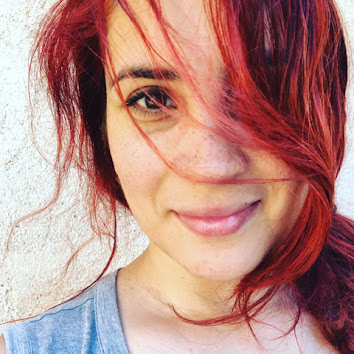Elizabeth M Castillo is a British-Mauritian poet, writer, indie-press promoter. She lives in Paris with her family and two cats, where she writes a variety of different things under a variety of pen names. In her writing Elizabeth explores themes of race & ethnicity, motherhood, womanhood, language, love, loss and grief, and a touch of magical realism. She has words in, or upcoming in Selcouth Station Press,
Pollux Journal,
Revista Purgante,
Lanke Review,
Streetcake Magazine, Fevers of the Mind Press,
Melbourne Culture Corner, Epoch Press, among others. Her bilingual, debut collection
Cajoncito: Poems on Love, Loss, y Otras Locuras is available for preorder/sale on amazon and through her website
www.elizabethmcastillo.com. You can connect with her on
Twitter or
Instagram as @EMCWritesPoetryWhat are you working on?
At the moment of writing this interview, I'm putting the final touches on my first full poetry collection Cajoncito: Poems on Love, Loss, y Otras Locuras. It's mostly formatting and marketing at this stage, as I'm self-publishing. It's a bilingual English/Spanish collection that came together almost entirely by itself, and is very close to my heart. Each poem in the collection is the expression of a feeling or an experience that needs to be felt, but in time will also need to be put away in a drawer or box (or Cajoncito, incidentally) in order to move on with life. I think we all carry a few of those...
Although I initially wrote most of these poems as my own personal form a therapy, soon I had enough for a chapbook, then a full collection, and people started to respond to the pieces that were picked up for publication here and there. At that point I had also begun writing in Spanish, which isn't my mother tongue, and three clear themes of love, loss and madness started to take shape. In the end it's been incredibly satisfying, cathartic even to have people tell me they find something of themselves in these extremely personal poems, and to see that there are in fact so many ways to love, so many ways to lose, and so many forms of madness that make up the in between.









